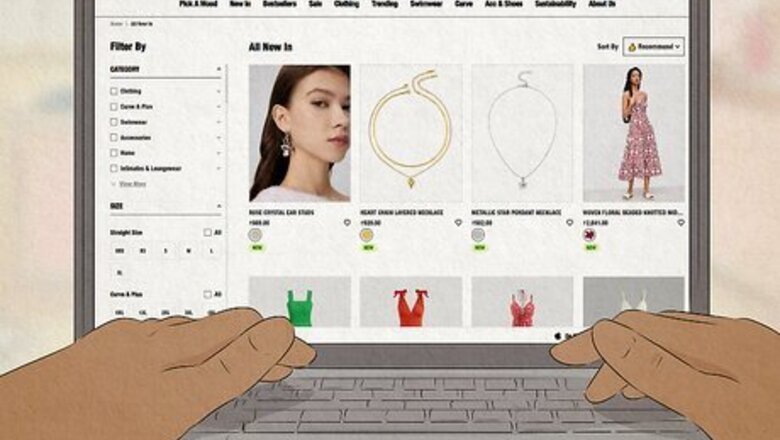
views
Is Cider fast fashion?
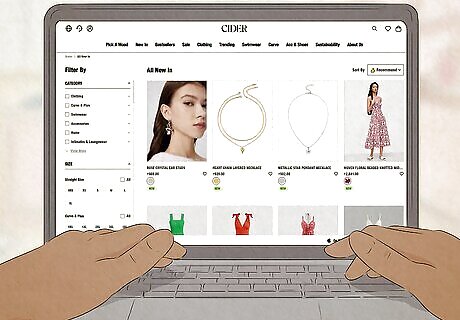
Cider is a fast fashion media brand, dropping new pieces weekly. Cider, also known as ShopCider, is a popular clothing brand that went viral in 2020 on TikTok. They produce trendy items at affordable prices. However, with weekly drops of new items, fast fashion is characterized as any item made quickly and inexpensively to attract consumers. Therefore, Cider designs their clothing to be discarded and replaced more quickly than higher-quality products. Sustainability has become a major buzzword for retailers. To fit into the “trend" of sustainability, many brands have begun to greenwash their items to market towards people looking to be more sustainable. Greenwashing is about claiming or creating the idea that a business’s services or products are more environmentally friendly or sustainable than they are. For example, eco-friendly products wrapped in plastic. Cider can be compared to other fast fashion brands like Shein, Princess Polly, Rue21, Forever 21, Garage, and more. Generally, Reddit users have found if a brand’s sustainability information isn’t easily accessible, it means they’re not eco-friendly.
Cider’s Sustainability Model
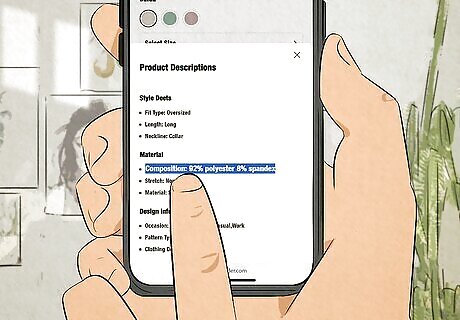
Cider primarily uses polyester in their clothing. Despite the brand’s claim that sustainable fashion “should be accessible, not exclusive,” a majority of the fabrics they use in their “New In,” “Bestsellers,” or “Trending” aren’t made of sustainable fabrics. One of the leading fabrics that should be avoided is polyester, which most of Cider’s clothes consist of. Polyester usually comes from petroleum or oil and is not biodegradable.
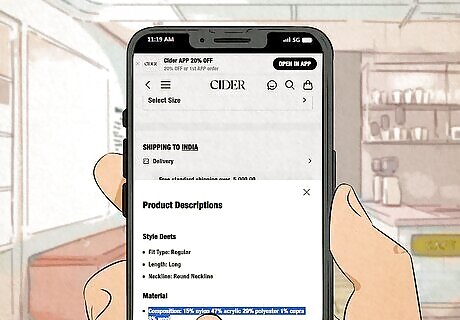
The company has wool and exotic animal hair in some collections. Another component of sustainable brands is the use of animals. Fortunately, the brand doesn’t use leather, down, fur, angora, or exotic animal skin across its collections. However, the company has a wool collection that comes from sheep. They’re also said to use exotic animal hair in some collections without sourcing where they’re getting this material from.
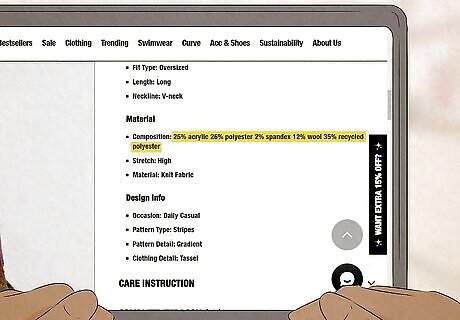
Cider only uses recycled polyester in specific collections. The company claims to invent a smart fashion model that produces on demand by adopting recycled materials and a responsible supply chain. But only certain collections #ReCider, for example, feature recycled polyester. With that said, recycled polyester is rarely just that. Clothes often blend different fibers, making recycling difficult. In 2020, 99% of recycled polyester was sourced from PET bottles, and only 0.5% came from pre-and post-consumer recycled textiles. Each time you wash a polyester product, it sheds small pieces of plastic (microplastics) into your water supply and air.
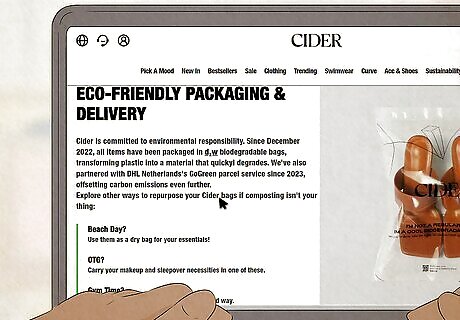
The company utilizes biodegradable plastic bags for packaging. In 2022, Cider switched to d₂w biodegradable bags, which can be placed in a compost bin to degrade quickly. However, how quickly that is remains unclear. Additionally, Cider partnered with DHL’s GoGreen parcel service to offset carbon emissions at no extra cost. They also recommend repurposing the Cider bags as dry bags for the beach, make-up bags, or to organize stationary.
Is Cider ethical?

Cider has limited information on their employee’s wages. Unfortunately, Cider does not provide wage transparency despite its policy that suppliers must not pay less than the local minimum wage. However, this doesn’t consider how low some minimum wages are in other countries. Meeting the minimum does not mean it’s a living wage for their workers. If you’re wondering what makes a company ethical, consider how the company creates positive change, does more for the environment, puts its workers first, and uplifts human and animal rights and their political stance.

They require compliance with national and international standards. In Cider’s Zero Tolerance policy, the company strives to provide its workers with acceptable working conditions. This includes safe work sites, fire permits, and two or more safety exits. Similarly, employees can drink water during working hours and go on bathroom breaks freely. During breaks, employees are free to leave the workplace.
Cider Supply Chain
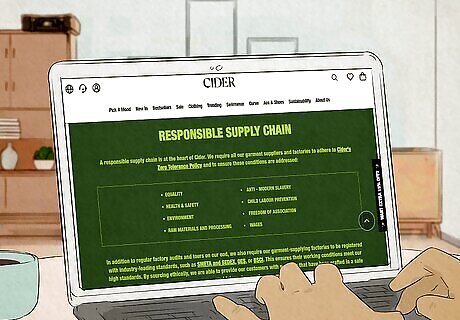
Cider requires suppliers to adhere to their Zero Tolerance Policy. Cider only works with suppliers, subcontractors, and factories that offer “the greatest protection to workers and the community.” Their Zero Tolerance Policy covers four key points: human rights, safety, environment, and integrity. Regarding the environment, suppliers must obtain materials “from responsible sources,” and the “origin of the inputs” must be monitored. Still, this information isn’t transparent to the consumer.
What is Cider?

Cider is a woman-owned fashion brand created in 2020. Four friends wanted to create a brand celebrating “happiness in the mundane,” and thus Cider was born. Inspired by the street fashion of major cities like New York, Los Angeles, Paris, Shanghai, and Seoul, the company claims to operate on a “smart fashion” model where they release new styles by adjusting production in real time to avoid producing large qualities of clothing. Cider’s involvement in DEI (Diversity, Equity, and Inclusion) is unclear. However, they claim to be a global team fueled by young talent—primarily women or women-identifying individuals. The company went viral on TikTok and reached 1 million followers on Instagram within their first year of operation.
Sustainable Fashion Fashion Alternatives

Opt for sustainable, ethical, or slow fashion brands instead. If you’re ready to enter your sustainability era, consider purchasing fashion at a slower rate. Although sustainable brands may not be the most affordable option up front, they last for years and years to come. Thrifting at your local Goodwill or online (Depop, Poshmark, Facebook Marketplace) are great alternatives to finding goods at an affordable cost. Other sustainable, size-inclusive brands include: Lucy & Yak Kotn Organique Mila.Vert Flare Street Iron Roots Frankie Collective Pact
Other Fast Fashion Brands

Avoid major fast fashion brands in favor of ethical brands. Fast fashion negatively impacts the planet, people, and animals. Although trendy, cute, and affordable items can be tempting, it’s always best to shop these brands secondhand rather than putting more money in their pocket. 12 popular fast fashion brands that should be avoided include: Forever 21 Zara H&M Topshop Urban Outfitters Missguided Fashion Nova Shein Romwe Hot Topic Pacsun Brandy Melville



















Comments
0 comment